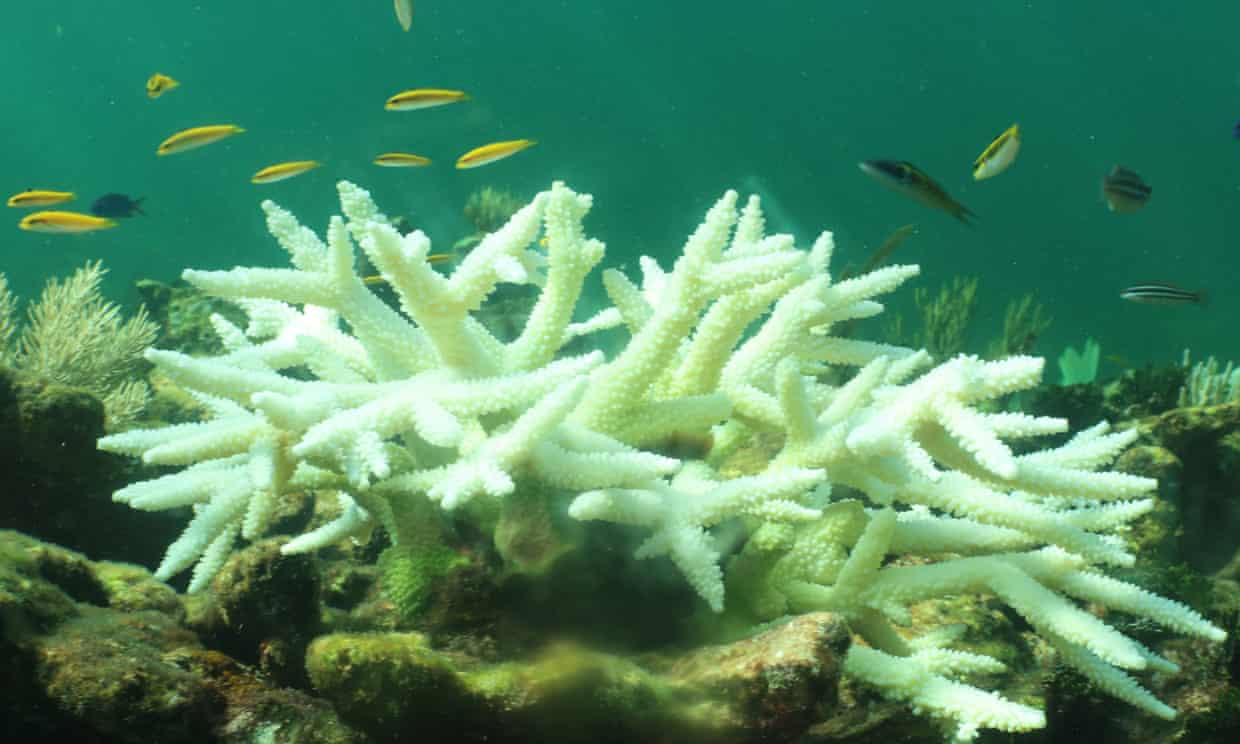
Corals across several countries are bleaching and dying en masse from unprecedented levels of heat stress, prompting fears that an unfolding tragedy in Central America, North America and the Caribbean could become a global event.
US government scientists have confirmed reefs in Panama, Colombia, El Salvador, Costa Rica, Mexico and six countries in the Caribbean, including the Bahamas and Cuba, are suffering significant bleaching, alongside corals in Florida that began turning white almost a month ago.
The world’s ocean temperatures have been at record high levels for months.
Dr Ian Enochs, head of the coral program at Noaa’s Atlantic Oceanographic and Meteorological Laboratory, has inspected the Cheeca Rocks reef that used to be one of the healthiest and most vibrant in the Florida Keys.
“I was not prepared for what I saw there,” he said. “Every single coral I saw was affected – either bleached or severely paled. It is pretty hard to wrap your brain around. It’s a lot to handle.”
Species of soft coral were “disintegrating” in the hot water. “The tissue was falling off them,” he said.
Depending on the species and the amount of heat, corals can recover from bleaching but scientists say they are more susceptible to disease and don’t reproduce as well in the years that follow.
To assess the level of heat stress accumulating on corals, scientists use a measure called degree heating weeks (DHW). For example, if a reef faces temperatures 1C above the average maximum for two weeks it is being subjected to 2DHW.
As a rule of thumb, at 8DHW reefs experience severe bleaching with a risk of mortality for some corals. Some reefs in the Florida Keys have hit 15DHW. Since the Noaa data started in 1985, the region had never seen levels above 10DHW.
From 2014 to 2017, a global mass bleaching event started in the northern hemisphere and continued on reefs in the south, including the Great Barrier Reef.
“We are looking at the unfolding of yet another global mass bleaching event,” Connolly said.
Prof Tracy Ainsworth, vice-president of the International Coral Reef Society, said the levels of heat stress facing some reefs was “unsurvivable” for corals.
“This is multiple reefs in multiple countries. There’s a concern we’re going into another massive global event,” she said.
Some corals that were at risk of death were decades old. She said the reefs become “permanently changed” from the heat. “There are decades of growth in some of these massive corals,” she said. “Once they die, they die. We can’t assume that a recovery happens because we’re now in the second decade of these events.